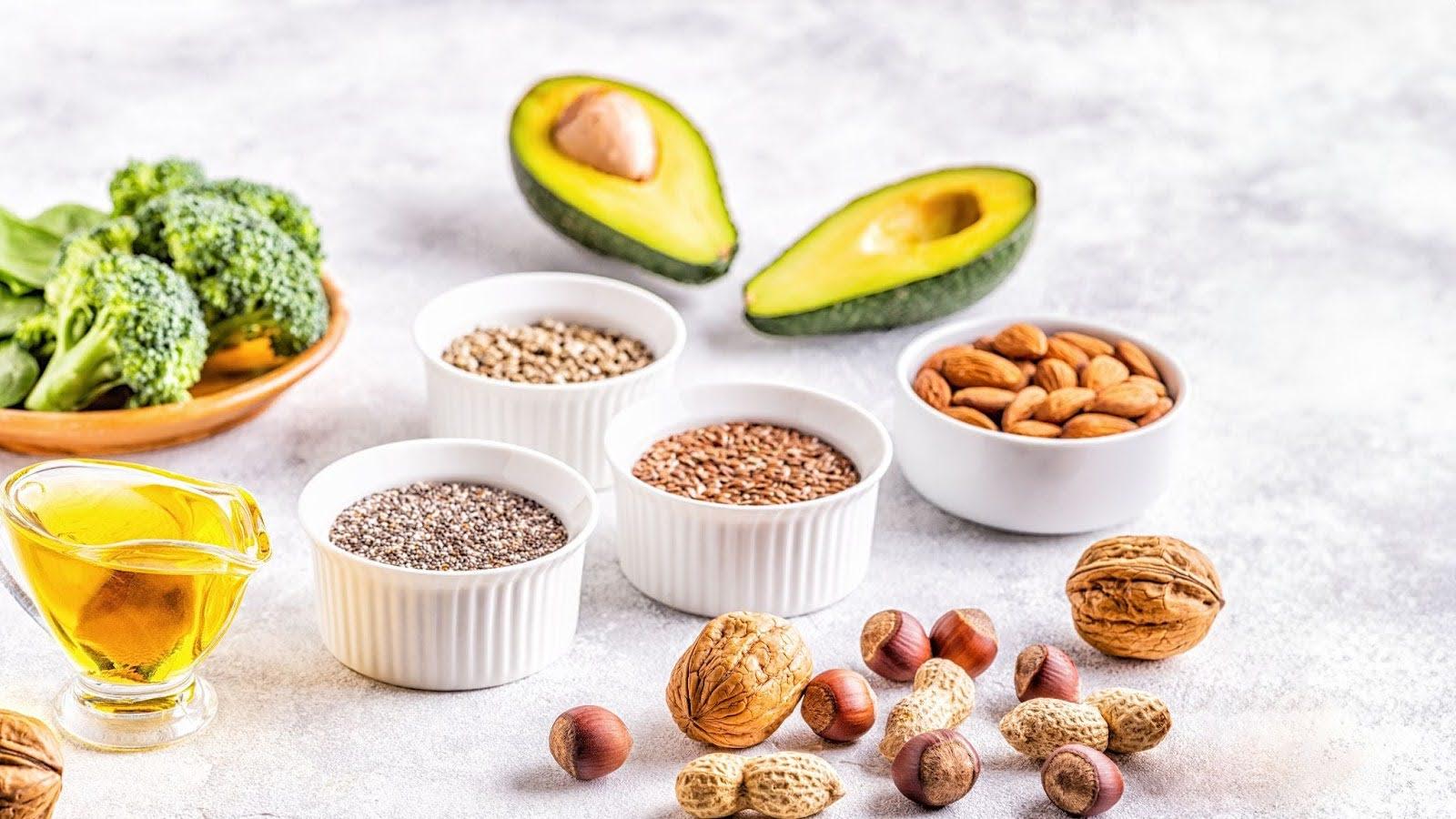Omega-3s are known for their beneficial effects on heart health, particularly for their anti-inflammatory properties and ability to reduce the risk of cardiac death and stroke. But what about athletes? Do endurance athletes such as cyclists, runners and triathletes need omega-3s if their hearts are already healthy?
In this article, we’re taking a deep dive into the importance of omega-3 for athletes. We’ll examine:
How omega-3 fatty acids affect performance, recovery and endurance.
What to look for in the best omega-3 supplements for athletes.
And we’ll provide some practical tips along the way.
The science of omega-3s
What is an omega-3, anyway? Omega-3 fatty acids are polyunsaturated fats that perform essential functions in your body at the cellular level. The body can’t produce enough on its own, however, so dietary intake is vital.
Fatty acids are molecules made up of carbon, oxygen and hydrogen that form long chains. There are different types of fatty acids. For example, saturated fats are fatty acids with no open bonds on their chemical chains. These are often considered less healthy fats because they can increase the risk of heart disease.
On the other hand, unsaturated fats, including omega-3s, have “open slots” along their chains and are considered healthy fats that support heart and brain function. Omega-3s are crucial for keeping your cardiovascular, endocrine and nervous systems functioning at their best.
EPA, DHA and ALA explained simply
There are three main types of omega-3 fatty acids: EPA, DHA, and ALA.
EPA (eicosapentaenoic acid) is found mainly in fish.
DHA (docosahexaenoic acid) is also derived from fish.
ALA (alpha-linolenic acid) is found in plant sources.
Your body can convert small amounts of ALA into EPA and DHA, but not enough to meet all your needs. Therefore, dietary and supplemental sources of EPA and DHA are vital for optimal performance and recovery.
How omega-3s affect endurance, recovery and performance
Omega-3s aren’t just for heart health. They support brain function, prevent cognitive decline, promote eye health, and can enhance mental well being – all of which are essential for athletes training at high intensity. The benefits of omega-3 for athletes extend well beyond cardiovascular health.

Benefits of omega-3s for athletes
Omega-3 fatty acids provide several advantages for athletes. Research shows they can reduce inflammation, enhance recovery, and support brain and heart health – key factors for endurance performance.
Inflammation and muscle recovery
A study published in the Journal of the International Society of Sports Nutrition in 2021 found that supplementing with fish oil for four weeks lessened muscle soreness and appeared to blunt some markers of inflammation following intense exercise. While the study did not show clear improvements in performance or direct evidence of injury prevention, it supports the idea that omega-3 supplementation can aid recovery and reduce post-exercise discomfort – one of the key benefits of fish oil for athletes.
Cardiovascular and brain health
Supplementing with 1.3 grams of omega-3 fatty acids twice daily for three weeks increased nitric oxide levels and oxygen uptake, enhancing endurance-trained athletes’ cardiovascular performance, according to a study published in the European Journal of Sport Science in 2015. For cyclists, this means being able to ride at a higher threshold with less strain – a tangible benefit of fish oil for cyclists.
Omega-3s also protect brain health. Regular supplementation may lessen the severity of concussions and support long-term cognitive performance.
Injury prevention and immune support
Omega-3 fatty acids play a role in maintaining a balanced immune system, helping athletes stay healthy while reducing the risk of overtraining-related inflammation. They can also help minimize muscle loss during recovery from injury, or periods of reduced activity.
Fish oil and other sources
Since our bodies don’t make enough omega-3s naturally, we must get them from food or supplements. Fish oil is one of the most effective and widely used sources. The American Heart Association recommends at least two servings (about 85 grams each) of fatty fish per week.
Rich dietary sources include:
- Salmon
- Mackerel
- Trout
- Sardines
- Sea bass
For plant-based athletes, ALA can be obtained from seeds, nuts and plant oils such as:
- Flaxseeds and flaxseed oil
- Chia seeds
- Walnuts
- Canola and soybean oil
Adding a sprinkle of flaxseed to yoghurt or making chia pudding are easy ways to increase intake.
Is fish oil good for athletes?
The evidence strongly supports fish-oil supplementation for endurance athletes. Numerous studies confirm that fish oil for cyclists and triathletes enhances performance, speeds recovery and supports overall health. The high bioavailability of EPA and DHA in fish oil makes it especially effective for athletes looking to boost omega-3 levels.
In short, fish oil is good for athletes because it reduces inflammation, protects against injury, and promotes faster muscle recovery. For those following a vegan diet, however, obtaining EPA and DHA can be more challenging, but alternatives exist.

Vegan alternatives
ALA is the most common plant-based omega-3, found in foods such as flaxseed, chia seeds, canola oil and walnuts. However, since the body converts ALA into EPA and DHA inefficiently, vegans may want to consider fortified foods or supplements made from algae oil or seaweed – both rich in DHA. These are sustainable and effective vegan sources of omega-3s.
Best omega-3 supplements for athletes
So, what makes the best omega-3 supplements for athletes? Here are the key factors to consider.
Type of supplement
Decide whether you want EPA (supports heart health and reduces inflammation), DHA (for brain and eye health), or a plant-based ALA supplement.
Source
Fish oil supplements are derived from fatty fish like salmon or sardines, while algal oil offers a vegan alternative that still provides EPA and DHA.
Purity
Choose products tested by third-party organisations such as IFOS or GOED to ensure they’re free from contaminants such as mercury and PCBs.
Ratio
The ideal EPA:DHA ratio is typically 1:1 to 3:2 for general health, though endurance athletes may require slightly different proportions.
Dosage
While there’s no official dosage for athletes, most experts recommend 250-500 milligrams of combined EPA and DHA daily for general health. Endurance athletes often benefit from 1-3 grams per day.
Form
Omega-3s in triglyceride form are better absorbed than those in ethyl ester form, making them a smarter choice for supplementation.
Other considerations
Look for reputable brands that use sustainable practices and light-protective packaging to prevent oxidation.
Recommended products
Some of the best omega-3 supplements for athletes include:
- Nordic Naturals
- Omega-3 Plus
- Jarrow Formulas
- Krill Oil Plus
Each offers high purity and good absorption, supporting endurance, recovery and cardiovascular performance.
Dosage and practical tips
How much omega-3 do athletes need? There’s no official recommended daily allowance (RDA) for omega-3s, but most organizations suggest 250-500 milligrams of combined EPA and DHA per day for general health. Athletes may benefit from 1-3 grams daily, while elite competitors, such as IRONMAN athletes, may need up to 4 grams for optimal inflammation control and recovery.
Why athletes may need more omega-3s
Intense endurance training causes inflammation and muscle stress. Supplementing with omega-3s helps reduce these effects, maintain muscle mass and support recovery – making omega-3 for athletes a key part of performance nutrition.
Timing of supplementation
There’s no specific “best time” to take omega-3s, but taking them with meals improves absorption. Long-term, consistent use is what produces the best results for reducing inflammation and improving performance.
Risks of over-supplementation
While generally safe, taking too much omega-3 can increase the risk of bleeding or heart rhythm disturbances (A-fib). Always consult your healthcare provider, especially if taking blood thinners or other medication.
Conclusion: How to integrate omega-3s into your training
There are clear benefits of fish oil for athletes and plant-based alternatives alike. Whether through diet or supplements, omega-3 for athletes plays a vital role in cardiovascular health, recovery, and performance. To experience the best results:
Choose high-quality, tested supplements.
Take them consistently.
Combine them with a nutrient-rich diet and smart training plan.

Omega-3 fatty acids are one of the simplest and most effective ways for endurance athletes – cyclists, runners, and triathletes alike – to enhance performance, reduce inflammation, and recover faster.
Further reading
- Journal of Sports Science and Medicine, “Effects of Omega-3 Supplementation on the Delayed Onset Muscle Soreness after Cycling High-Intensity Interval Training in Overweight or Obese Males”
- ROUVY, “Protein Powder For Endurance Athletes: How To Recover Smarter”
- Nutrients, ”Omega-3 Fatty Acid Supplementation on Post-Exercise Inflammation, Muscle Damage, Oxidative Response, and Sports Performance in Physically Healthy Adults”
- ROUVY, “Best Supplements For Cyclists And Triathletes”
- Nutrients, “Omega-3 Polyunsaturated Fatty Acids: Benefits and Endpoints in Sport”









